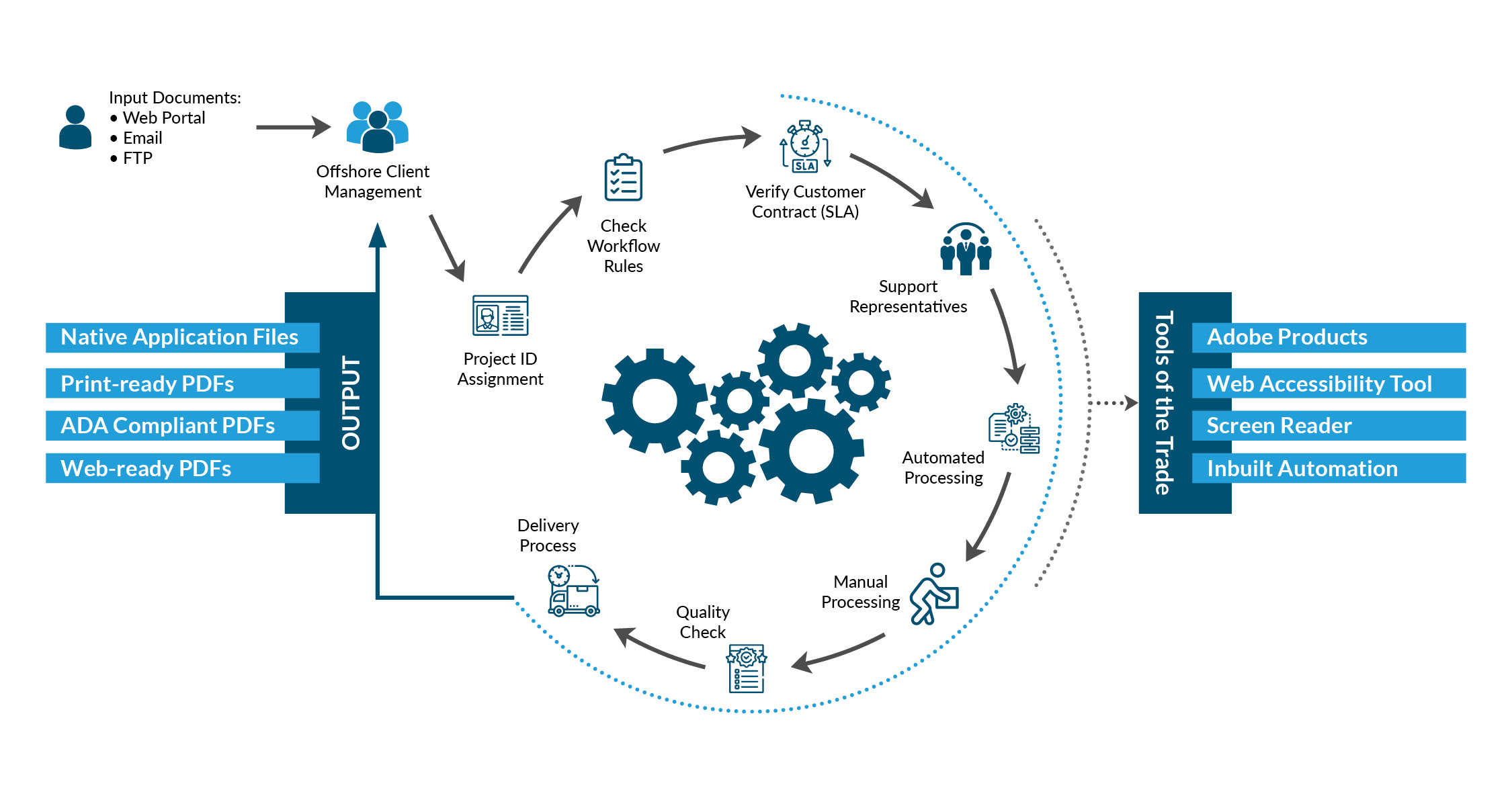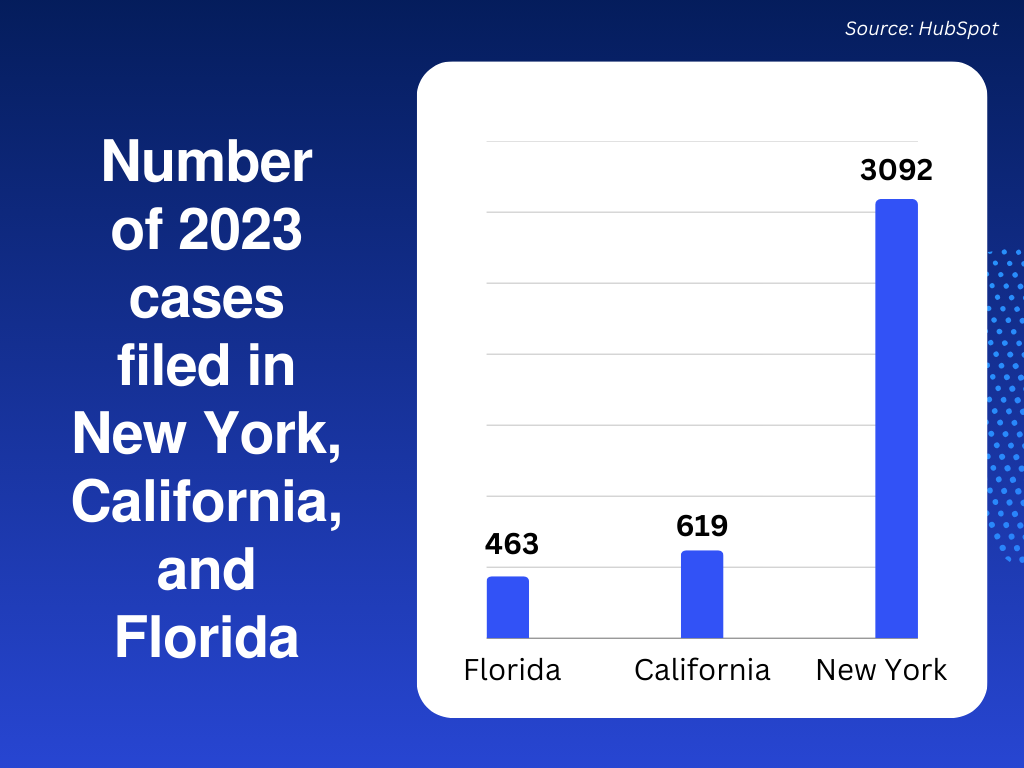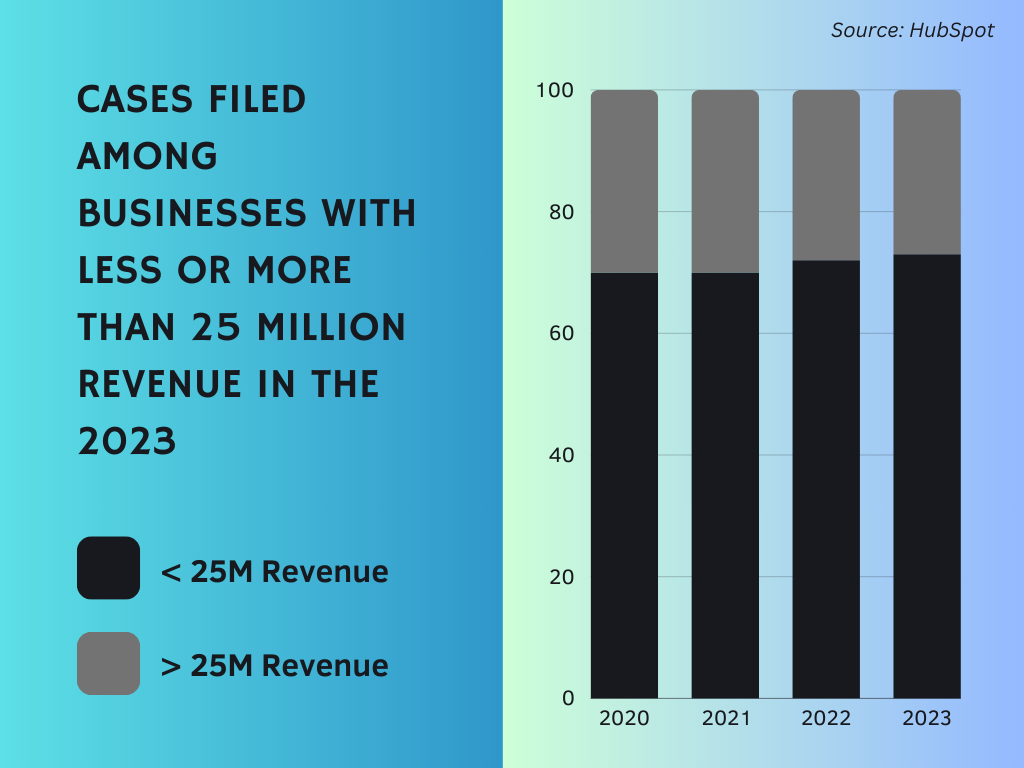The Americans with Disabilities Act (ADA),
1990 was passed to ensure the full inclusion of people with disabilities in all aspects of American society. As part of the ADA, the ADA Accessibility Guidelines (ADAAG) state that all electronic and information technology, i.e. designing websites, software, hardware, video and multimedia, and telecommunications, must be accessible to people with disabilities.
With the increase in digital accessibility, the ADA Enforcement Agency encourages organizations to use the compliance guidelines as a guide on how to become accessible.
Section 508 Compliance Services
Section 508 of the Rehabilitation Act or ADA requires Federal agencies to make Electronic and Information Technology (E&IT) accessible to users with disabilities, including:
- Visual impairment, color blindness
- Hearing impairment
- Speech impairment
The law includes standards for software applications, operating systems (OS), web-based applications, and multimedia. These standards apply to files made available in the Portable Document Format (PDF).
PDF Accessibility/ADA & WCAG Compliance
The Portable Document Format or the PDF is one of the most widely used formats in the print media, publishing, and education domains. However, it is important to ensure that these PDFs are accessible to people with disabilities.
In compliance with Section 508, WCAG 2.0, and WCAG 2.1, or ADA, Aptara ensures PDF documents are accessible to people who use screen readers and that they meet the necessary standards and requirements. This means that the documents which are in PDF format are properly tagged and well structured.
Large Prints
It is expected that, as the population ages, the group of older individuals who are blind or have low vision will grow and the need for large print will only increase. Large print format documents, when produced properly, follow a set of guidelines that improve readability beyond standard design and formatting such as the following:
- Larger point size for characters
- Sans-serif fonts
- Increased spacing
- Improved contrast
MS Word Accessibility
The key to providing an accessible Microsoft Word document is to ensure that the content is formatted correctly and that the accessibility options are implemented. With assistive technology or a screen reader, a user might be able to read a normal MS Word document. But ensuring that we meet the accessibility techniques for Microsoft Word warrants that the document is easily usable and accessible to people with disabilities.
How Aptara Can Help

Path to Digital Accessibility:
-
-
- Stay Accessible and Compliant – We authenticate your digital assets before delivery using our quality check process following WCAG guidelines and other best practices for accessibility.
- Evaluate Your Needs – We meticulously evaluate the scope of your needs, provide a thorough audit of your existing digital assets, and design a client-focused workflow of new projects to save time and money upfront.
- Enable Accessible Processes – We support your remediation efforts through our convenient workflow, train and educate your staff using appropriate accessibility guidelines, and work with your organization to build a long-term plan for success.
Accessibility Lawsuits
To bridge the gap between abled users and differently-abled users, advocates have filed accessibility lawsuits against businesses that do not have accessible websites for all. UsableNet reports a surge in lawsuits targeting desktop website accessibility, with mobile app cases on the rise. A noteworthy trend involves video-related claims, emphasizing the need for closed captions and audio descriptions. Notably, businesses with under 25 million in annual revenue are primary lawsuit recipients, revealing a pattern where plaintiff firms submit claims in large volumes, as illustrated in the image below.

In 2023, New York surpassed California in filing a substantial number of such cases, as highlighted in a HubSpot report. These findings point towards an anticipated continuation of the upward trajectory in digital accessibility lawsuits for the upcoming year. This encompasses legal actions brought forth not only in federal courts but also in state courts within the jurisdictions of New York and California. The data suggests an ongoing commitment to addressing digital accessibility concerns, with a focus on both national and state-level legal frameworks.
Here are the 3 best practices to be web-accessibility compliant:
-
-
- Use Testing Tools and fix common accessibility problems
- Be proactive and consistent
- Work with web accessibility, not against it
Click below to reach out to us to know how Aptara can help you be ADA compliant.








